
With a few exceptions, the modern stainless-steel propeller is created using the investment casting process, a metallurgical art that dates back more than 4,000 years. Also known as the lost wax process, ancient cultures used investment casting to create artwork and jewelry, usually carving a pattern from beeswax and investing, or covering, the wax pattern with a shell of clay. Molten copper, bronze or gold was then poured through a wax channel into the shell, displacing the wax. Once cooled, they knocked the shell away to reveal a replica of the original wax pattern.
This same process, though influenced by modern technology, is used to create marine stainless-steel propellers. We recently toured the Yamaha Precision Propeller Industries facility in Greenfield, Indiana, one of the newest investment casting foundries in North America. The 55,000-square-foot plant began operation in March 2021, and today all Yamaha stainless-steel props are cast here, then finished at a YPPI facility in nearby Indianapolis.
Esta historia es de la edición March 2023 de Boating.
Comience su prueba gratuita de Magzter GOLD de 7 días para acceder a miles de historias premium seleccionadas y a más de 9,000 revistas y periódicos.
Ya eres suscriptor ? Conectar
Esta historia es de la edición March 2023 de Boating.
Comience su prueba gratuita de Magzter GOLD de 7 días para acceder a miles de historias premium seleccionadas y a más de 9,000 revistas y periódicos.
Ya eres suscriptor? Conectar

AFFORDABLE SATCOM
Communications devices using satellite technology are more abundant today than any time in the past. What's more, many are portable, ultra-compact, affordable relatively and designed for boating, dispelling any perceptions that you need a big, expensive dome antenna aloft to access satellite communications.
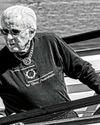
IN THE BEGINNING
REPOWERING FOUNTAIN HULL NO.1
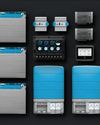
NAVICO GROUP FATHOM 2.0
Engine charging at 48 volts could be a game-changer.
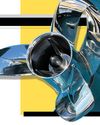
PROPS FOR INNOVATION
Sharrow MX3 propellers live up to most of the company's performance-improvement claims.
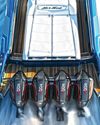
MERCURY RACING 500R
Supercharged power for a variety of boats.
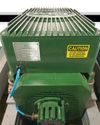
FLIPPING THE SWITCH
Much reporting focuses on reasons why one might choose electric marine power. The issues of range, speed, noise levels, winterizing and ethanol challenges, lake restrictions, environmental concerns and more all must be resolved on an individual basis. Little gets said about how a boater choosing to repower with electric actually gets that accomplished. Is it DIY? And if not, how does it get done?

TOW-VEHICLE TECH
If it's been a while since you bought new tow vehicle, you might be surprised by the many built-in advancements in trailering technology. New tow tech ranges from integrated weight scales and adaptive suspensions to systems that automatically back up your truck to hitch up your trailer. Here are a few examples to look for. -Jim Hendricks

MONUMENTAL TIPS FOR BACKING A TRAILER
Three Boating greats offer advice for a perennial reader query.
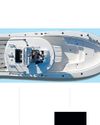
STICKING POINTS - Anchoring alternatives, and why you will always need a traditional anchor.
My brother-in-law likes to fish offshore reefs, and the process once entailed navigating to a mark, dropping a float, and idling upwind or up-current to drop the anchor in hopes the set would drop us back to the float.
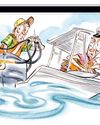
FOR WANT OF A CLAMP
When 100 miles from shore, home and help, this boater’s preparedness prevented potential catastrophe.